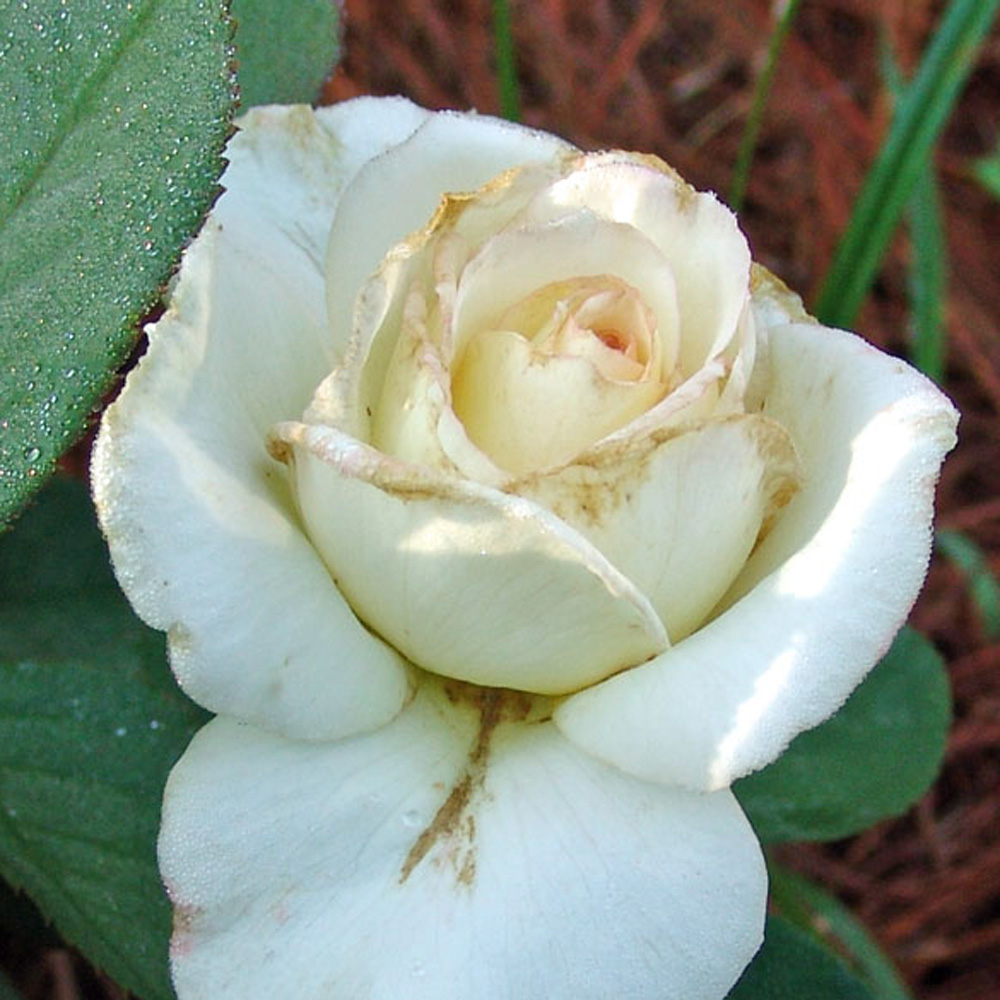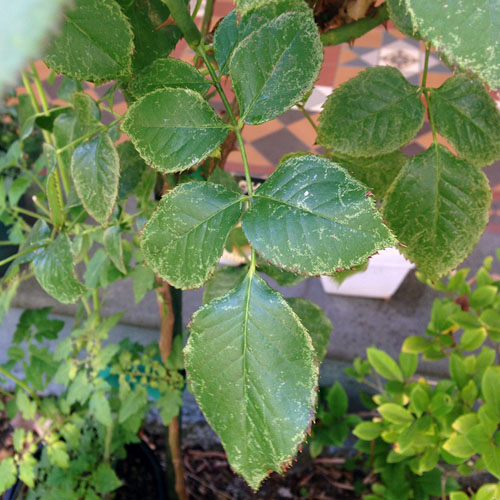Thrip


Thrip are a tiny insect around 2mm long, they vary in colour from yellow to black and come into your garden on the wind. They will normally come in on hot dry weather in Spring or Summer and are attracted to light colours, they often can be seen on white sheets hanging on the line.
Thrip feed by draining the contents of plant cells, this will cause white specks or trails on new leaves and scarring on petals which are often seen as brown blemishes on light coloured blooms. Most people notice the effects on pale coloured flowers first leaving blooms with brown edges which is often mistaken for water rot. If left they can be quite destructive and often cause deformities in new growth.
Treatment
The first thing to try is your hose - they hate water. If a small infestation or you have just noticed the signs then spraying the rose plant with water from your hose discourages them from settling and they will soon move on. Remember to spray both under and over the leaves.
Cut off all badly affected blooms.
Encourage natural predators such as: bugs, ladybirds, lacewing larvae, mites and predatory thrips.
Remove weeds to reduce breeding sites.
Try using a garlic or chilli spray. Take two teaspoons of crushed garlic or chilli and put into 500mls of water. Let this sit for a couple of days so the water is very potent. Strain and spray onto the plants. Although this home remedy is highly effective it will need to be repeated each week for a couple of weeks or after it has rained.
It may be necessary to spray roses with an insecticide or Eco Oil. Remember that the thrip also lay eggs on the plant and a repeat spray may be necessary a couple of weeks after the first. Please use chemicals sparingly as they also kill the good insects and natural predators as well as the one you are trying to get rid of - always look for a natural alternative before using chemicals!
Thrip have a short life cycle, having many gererations in one year. Therefore the chemical sprays on the market are a bit of a hit and miss as thrip become very resistant to most chemical sprays.
Remember that whatever treatment you decide on will have to be re-applied in a couple of weeks when the eggs laid by the first infestation hatch.
For a long term solution try companion planting your roses with Lavender, Garlic, Chilli, chives or marigolds. This will help to protect your roses from future attacks.
Important: signs and symptoms will vary significantly between varieties, even within similar categories. The information provided here is a basic summery of the most common affects and will not always be applicable to all rose varieties.


